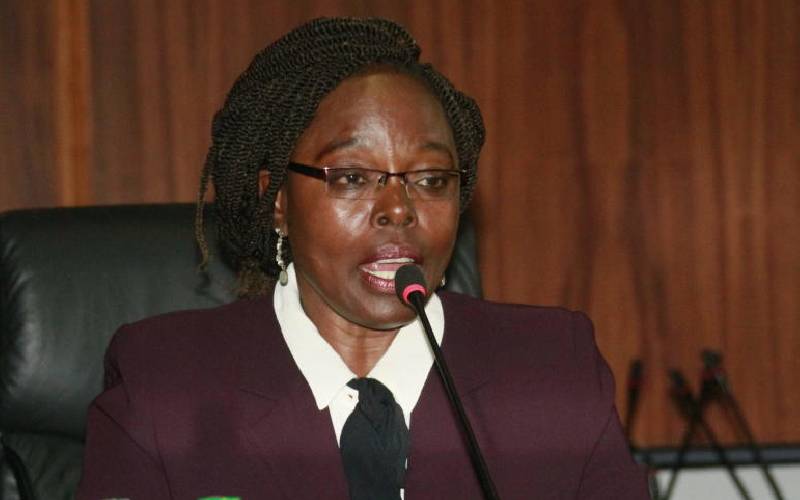×
The Standard e-Paper
Home To Bold Columnists

Controller of Budget Nominee Dr. Margaret Nyang'ate Nyakang'o. [Boniface Okendo,Standard]
The Government’s growing appetite for expensive domestic borrowing to supplement external loans came under sharp criticism by Senate yesterday.